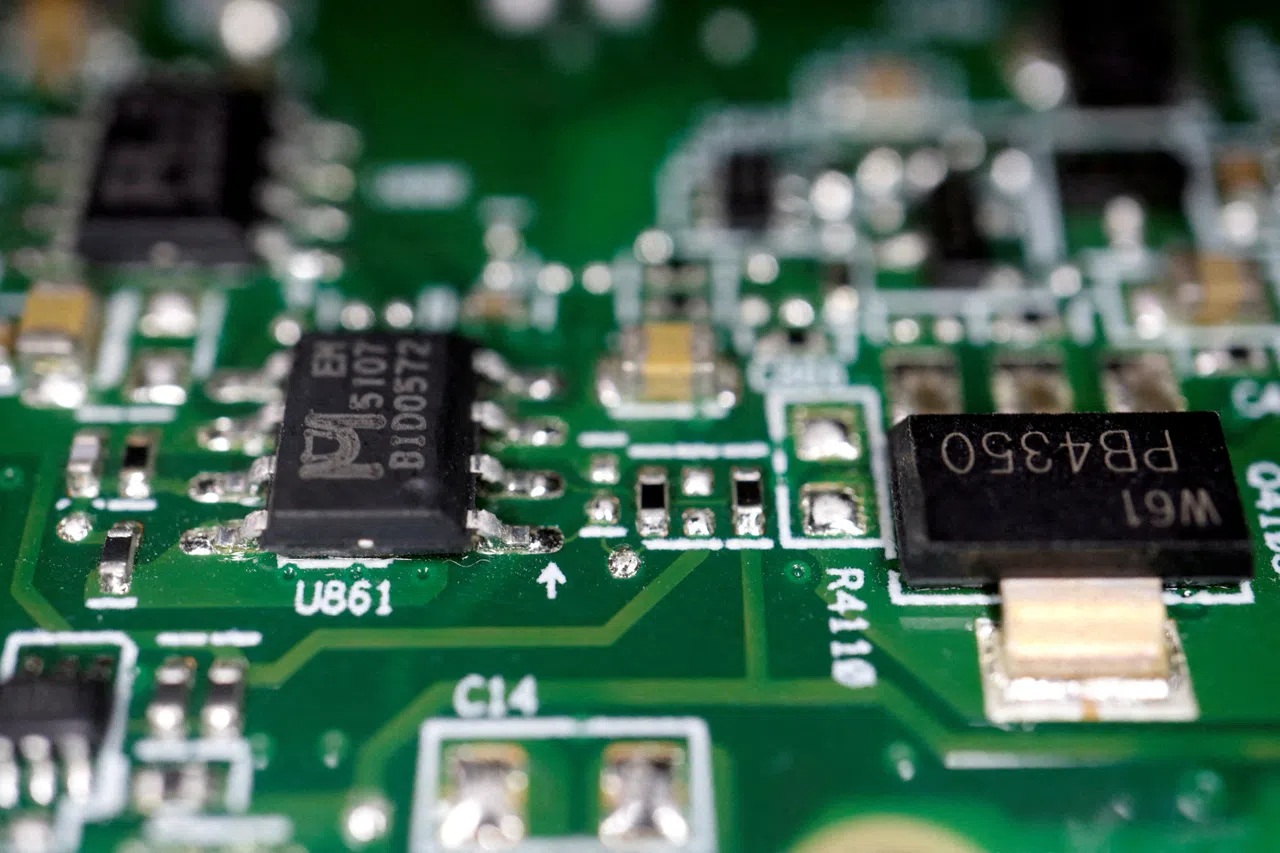WHEN Taiwan’s Powerchip Technology entered a deal with the eastern Chinese city of Hefei in 2015 to set up a new chip foundry, it hoped the move would help provide better access the promising Chinese market.
Nine years later, however, that Chinese foundry, Nexchip, has become one of its biggest rivals in the legacy chip space, leveraging steep discounts after Beijing’s localisation call forced Powerchip to give up the once-lucrative business making integrated circuits for Chinese flat panels.
Nexchip is among Chinese foundries quickly winning market share in the crucial US$56.3 billion industry of so-called legacy or mature node chips made on 28 nanometre technology and larger, a trend that prompted the Biden administration to initiate an investigation and is alarming Taiwanese industry.
These Chinese foundries, which include Hua Hong and Semiconductor Manufacturing International Corporation (SMIC) , are threatening the long-held dominance of Powerchip, UMC and Vanguard International in the market for chips used in cars and display panels by slashing prices and embarking on aggressive capacity expansion plans.
Taiwanese foundries are then forced to retreat or pursue more advanced and speciality processes, executives in Taiwan said.
“Mature-node foundries like us must transform; otherwise, Chinese price cuts will mess us up even further,” said Frank Huang, chairman of Powerchip Investment Holding and its listed unit Powerchip Manufacturing Semiconductor Corporation , which the company was reorganised into in 2019.
BT in your inbox
Start and end each day with the latest news stories and analyses delivered straight to your inbox.
UMC said that the expansion of capacity globally had created “severe challenges” for the industry and that it was working with Intel to develop more advanced, smaller chips and diversify beyond legacy chipmaking.
Trade tensions between Washington and Beijing may ease the pain a bit, executives in Taiwan said, as companies hoping to secure supply chains and seek chips made outside China. US President Donald Trump, however, has said he plans to impose tariffs as high as 100 per cent on semiconductors made outside the United States.
Vanguard International declined to comment. SMIC, Nexchip and Huahong did not respond to requests for comment.
Cheaper, more aggressive
Blocked by the US in recent years from pursuing high-end chip technology, Chinese foundries doubled down on legacy chips and have undercut Taiwanese rivals on price because of strong funding support from Beijing and their embrace of lower margins, Taiwan chip executives say.
Chinese companies dramatically increased legacy chip production capacity in recent years. According to TrendForce, in 2024, China’s share of global mature node manufacturing capacity was 34 per cent, while Taiwan’s was 43 per cent.
By 2027, China’s share is projected to surpass Taiwan’s, while South Korea and the US, with single-digit shares, are expected to decline.
Consultancy Semi forecasts that out of 97 new fabrication plants starting production from 2023 to 2025, 57 are in China.
Although Taiwanese foundries can still compete on factors such as process stability and better production yield rates, one executive working at a Taiwanese chip designer said Chinese foundries had since 2023 become more aggressive in pitching business.
That person, and a second one working at another Taiwanese chip designer, said Chinese customers – especially in consumer-focused sectors such as panels – were increasingly asking Taiwanese chip designers to hire Chinese fabs to make the chips, in line with a call from Beijing for Chinese companies to localise supply chains.
Both people declined to be named because of the sensitivity of the matter.
Chinese government-related companies, such as China Mobile and China Telecom, have also been issuing stricter requirements on using China-made components, they said.
China Mobile and China Telecommunications Corporation, and China’s Ministry of Industry and Information Technology, did not respond to requests for comment.
The Trump effect
Galen Zeng, a senior research manager at global market intelligence firm IDC, said Taiwanese chip designers and foundries were likely to specialise their processes and diversify away from legacy chips, although their profitability would still be hit by Chinese competition in the medium-term.
Powerchip’s Huang said they plan to reduce their work on display driver and sensor chips, which are largely used in the Chinese market, and shift focus towards 3D stacking, a technique that integrates logic and Dram memory chips to improve computing performance and reduce power consumption.
The company remains Nexchip’s second-largest shareholder, with a 19 per cent stake, but does not play an active management role.
“For chips that will be used in China, we will not be able to do the business… We must exit, otherwise, there’s no way to survive,” Huang said.
Some respite could come from efforts by Washington to curb China’s chip industry growth, alongside worsening relations between Beijing and other countries that force customers to split supply chains into China-for-China and non-China networks.
Huang said that they were already seeing some orders that would have gone to China being directed to their Taiwan sites and expect that to accelerate. An executive from a chip design company in Taiwan, who spoke on condition of anonymity because of the sensitivity of the situation, said they had been receiving more orders from international customers asking to make chips outside China since 2023.
“Some customers will tell us that no matter what, they do not want us to tape out chips in China; they do not want ‘Made in China’,” the executive said. REUTERS



